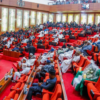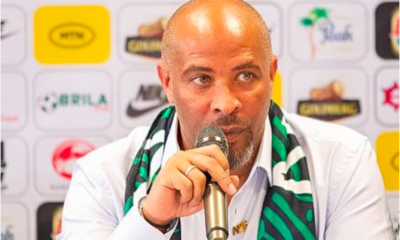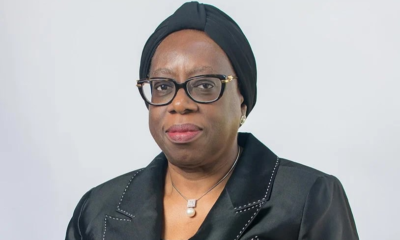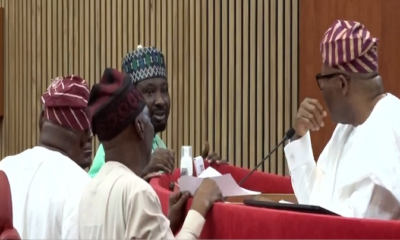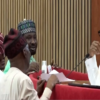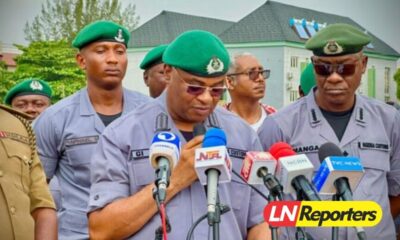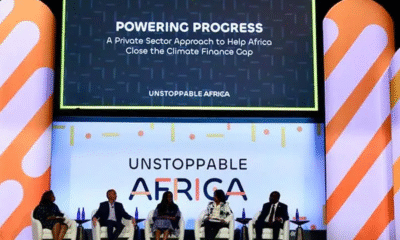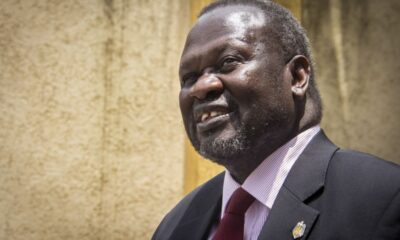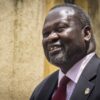African News
Tinubu Expresses Deep Concern Over Slow Pace Of Activating ECOWAS Standby Force
President Bola Tinubu on Sunday expressed deep concern over the slow pace of activating the ECOWAS Standby Force and urged West African leaders to move swiftly from concept to reality in the collective fight against terrorism and transnational crimes.
The President raised the concern in his opening speech at the 67th ECOWAS Authority’s Ordinary Session in Abuja, one of his last acts as chairman of the 50-year-old regional economic bloc.
He emphasised the urgency of operationalising the force in the face of escalating insecurity across the sub-region.
According to him: “ECOWAS Standby Force must move from concept to operational reality. I am a little bit worried about the slow pace of its activation, which is taking longer than desired”.
President Tinubu noted that threats confronting the region are transnational, “driven by agile and dangerous networks that respect nobody’s border.”
“No single nation can, therefore, address these challenges alone. We must strengthen coordination, amplify political will, and prioritise a collective approach to secure it,” he added.
The President highlighted major milestones during his leadership of the regional bloc.
He said the completed ECOWAS Military Logistics Depot in Lungi, Sierra Leone, will play a critical role in providing equipment and other logistics to forces deployed by ECOWAS.
“Last February in Addis Ababa, Nigeria signed the Sixth Agreement with the African Union. With the depot’s completion, Nigeria is committing itself to sea-lift and air-lift arrangements with ECOWAS,” he said.
President Tinubu expressed the hope that ongoing diplomatic engagements with Burkina Faso, Mali, and Niger will eventually lead to their return to the community.
“Under my chairmanship, I deployed all diplomatic means to engage and dialogue with our brothers in Burkina Faso, Mali, and Niger. I am confident that before too long, they may return to the family, “he said.
He called for deeper economic cooperation, empowering the private sector, and removing trade barriers to unlock West Africa’s potential.
“Our intra-regional trade remains low, even as we possess the potential to be an economic powerhouse. We must create the enabling environment, empower the private sector, and create the conditions necessary for innovation to flourish,” he said.
The President urged the speedy implementation of key regional infrastructure projects—including the West African Gas Pipeline, West African Power Pool, and Abidjan–Lagos Corridor Highway—as catalysts for development and integration.
Also on Sunday, President Tinubu handed over the chairmanship of the ECOWAS Authority of Heads of State and Government to his Sierra Leonean counterpart, Julius Maada Bio, expressing confidence in the region’s continued path toward peace, stability, and prosperity.
The ECOWAS Authority’s 67th Ordinary Session closed with the symbolic handover of the Emblem to the incoming Chair.
The President described it as a profound honour and privilege to have led the esteemed body, adding that he remained deeply humbled by the trust and support extended to him throughout his two-term tenure.
He said: “As I now hand over the mantle of leadership to my great friend and dear brother, His Excellency President Julius Maada Bio of Sierra Leone, the new Chairman of the ECOWAS Authority of Heads of State and Government, I do so with a deep sense of fulfilment and optimism for the future of West Africa.
“I remain confident that with the continued cooperation of all its members, ECOWAS will scale greater heights in our collective pursuit of peace, security, stability, and prosperity for our people and our region”.
Reflecting on his tenure, President Tinubu noted the complex political and security challenges the region has faced in recent years while calling on leaders to remain committed to the evolving needs of West African citizens.
“Let us deepen cooperation, uphold diplomatic principles, and foster inclusive growth that leaves no one behind—especially our youth, women, and vulnerable populations, who remain central to the future of our region,” he said.
The President emphasised the need to preserve democratic values and ensure that political stability is not separated from economic development.
“Our organisation must continue to strike a fine balance between its core regional mandate of economic integration and the complex political, security, and governance challenges, including the preservation of democratic values in our region.”
“Economic integration cannot be superimposed on an untenable political environment. That is why we must remain steadfast in our resolve to rise to these emerging challenges,” he declared.
President Tinubu commended the ECOWAS Commission, community institutions, and technical staff for their dedication and professionalism in supporting the Authority’s work and organising a successful summit.
He reaffirmed his commitment to the region’s shared mission and urged continued unity among member states.
“As you return to your respective countries, let us remain resolute in our shared mission to deepen our integration, protect our people, and build a prosperous, secure, and united West Africa,” he said.
In his acceptance speech, President Bio of Sierra Leone, the newly elected Chairman of the ECOWAS Authority of Heads of State and Government, outlined four key priorities.
He pledged to lead a renewed, people-centred, and action-oriented ECOWAS in the face of unprecedented challenges and opportunities for the West African region.
President Bio said his leadership would focus on restoring constitutional order and deepening democracy, revitalising regional security cooperation, unlocking economic integration, and building institutional credibility.
He said: “We must engage transitional governments constructively and support member states in building stronger democratic institutions rooted in the rule of law.
“We must overhaul our collective security architecture—from intelligence sharing to rapid response capabilities—to confront new threats with unity and resolve.
“The ECOWAS Trade Liberalisation Scheme, regional infrastructure, and cross-border value chains must become engines of job creation, trade, and resilience, especially for our women and youth.
“ECOWAS must reform itself to become more transparent, efficient, and responsive to the needs of its people. This is how we will rebuild trust in regional cooperation”.
President Bio commended his predecessor, President Tinubu, for laying a solid foundation of regional dialogue, economic recovery, and peacebuilding.’
“I am humbled to build upon the strong foundation you have established,” he said, thanking President Tinubu for his “experience and leadership. “
Acknowledging the complexities of the current moment, the Sierra Leonean leader noted that West Africa stands at a crossroads, grappling with terrorism, illicit arms flow, political instability, and transnational crime, particularly in the Sahel and coastal states.



